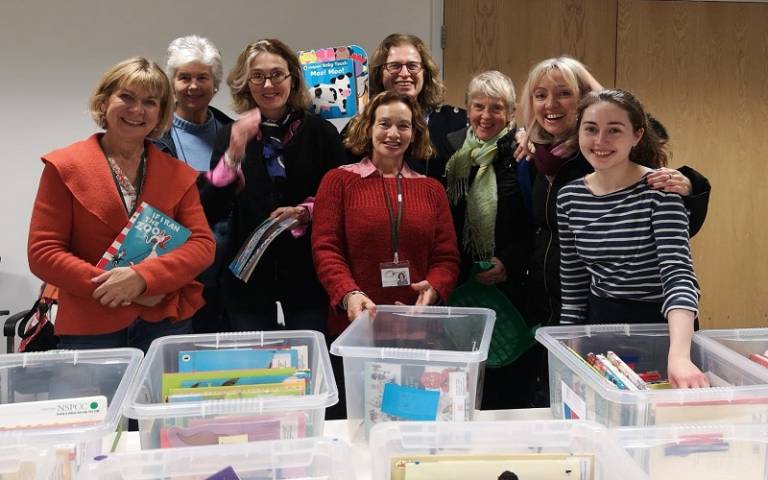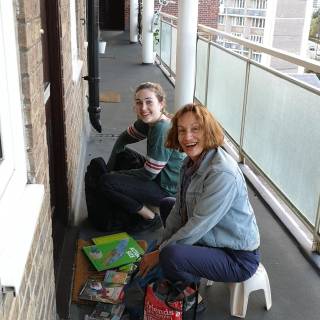An interview with Matilda Singer, UCL student and volunteer at Doorstep Library
21 February 2020
Student Journalist Georgie interviews final-year Arts & Sciences student Matilda Singer, whose volunteering work involves inspiring a love of reading among children under 11 at London-based charity Doorstep Library.

How does Doorstep Library work?
Doorstep Library is a children’s literacy charity, which operates across three boroughs in London – I’m based on a project in Hammersmith and Fulham, and I’ve been volunteering for nearly two years. Every week, volunteers go out in pairs, with rucksacks of books to visit children and families in disadvantaged areas. Many of the families we visit have problems with their reading so we share stories with them, lending them books to read when we’re gone. Peppa Pig, The Gruffalo, and Where’s Wally are always popular choices.
Doing a round each week, we end up knowing the children really well, and can bring along books based on their interests. We also signpost community services, like workshops at local libraries, which can be really helpful for parents alongside the regularity of our visits.
Why did you want to get involved with this charity in particular?
I work in a bookshop and wanted to use my skill set to share a love of reading. What’s really unique about Doorstep Library is that you get to visit children at home, rather than at school. The kids may have access to books at school, but encouraging them to read for pleasure at home is more tricky, and that’s where we come in.
How do you manage to fit volunteering into your busy schedule?
That’s a good question. Permanent volunteers like me volunteer one afternoon a week, so it fits into my regular routine alongside work and university. Others are stand-in volunteers, who are called in when people can’t make it. This is a great option for someone with a schedule that changes all the time. Lots of organisations offer ad-hoc volunteering placements like this, which can work if you’re not sure you can commit to something on a weekly basis.
How would you describe your volunteering experience?
It’s definitely improved my university experience. Working on projects outside of academia gives you perspective – you realise that essays aren’t the whole world, and volunteering is something to look forward to in the week if you’re having a stressful time.

What I’ve loved most is watching the children learn to read – realising that suddenly they can read the words themselves, whereas a year ago we’d only choose picture books. It’s a real privilege to see them enjoy reading, and to be welcomed into people’s homes.
What skills have you picked up?
Definitely communication – not only how to engage with kids of all different ages, but meeting new people and communicating with those from all walks of life. It’s also helped with being organised, because you have to make sure your round runs smoothly and remember which books the kids enjoy.
How can new volunteers get involved in the first place?
I used a volunteering website to search for specific interests alongside my ideal time commitments. I would advise others to think about organisations they respect and look for something they’re already passionate about. I love books and my job already involves sharing a love of reading so Doorstep Library made perfect sense.
What advice would you give to prospective volunteers?
Go for it, because it can positively impact your own wellbeing. The point of volunteering is to give back, help others, and further a cause that means something to you. But it’s also a lot of fun, and can benefit your mental and physical health. I always have a massive laugh with my volunteering partner, and love catching up with her every week and hearing about her grandkids!
For students, volunteering can be a way to try something out more informally, where you can dip your toe in before looking for a first job. I’d encourage it for those interested in the third sector – volunteering is definitely the first port of call.
Georgie Bartlett
 Close
Close

